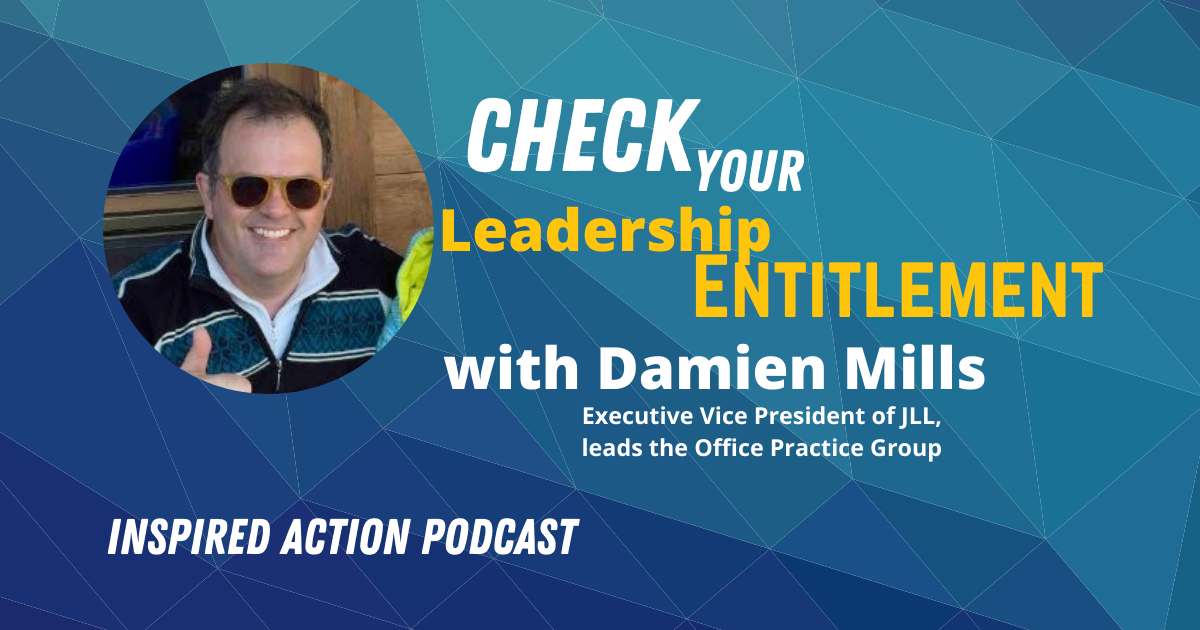“Check Your Leadership Entitlement” Brief Summary:
Entitlement; some leaders feel they are entitled and can bypass decisions without their team’s input. In this Inspired Action For Imperfect Humans podcast episode Host Kyle Kalloo, and Executive Vice President of JLL, Damien Mills discuss why it’s important to engage your teams when decisions are being made, and why it’s important to walk and make your decisions together.
“You may have to make the tough decision, but that doesn’t entitle you to just override our perspective. You know, we got to walk, we got to work it through. We got to walk that mile together and not just you shut me down.”
Summary:
- Kyle introduces Damien Mills
- Is leadership easy?
- The fear of failure
- Entitlement versus perspective as a leader.
- Standing on the shoulder of giants and corporate coaching culture
- Giving your team time.
- Why you should focus on your strengths rather than weaknesses
- Foundations, why they are important, especially right now during the pandemic.
Guest Contact Info:
JLL Canada: www.jll.ca
Damien Mills LinkedIn: https://www.linkedin.com/in/damienmills/
Damien Mills [email protected]
Calls to Action:
Even before the remote workforce evolution, office culture was inherently fragile. After all, it’s made up of imperfect humans interacting with other imperfect humans. And while perfection isn’t the goal, we all secretly wish for a workplace where people find ways to bring out the best in each other. Unfortunately, that’s not always an intuitive skill. It takes guidance, practice, and then more guidance and practice… but with the right leadership, it’s definitely achievable. How do you enhance your workforce’s ability to engage, collaborate, and adapt in this volatile and uncertain reality? Get the answers to your culture questions when you setup a complimentary Discovery Session with Kyle Kalloo at https://ChangeMyLifeCoaching.as.me/?appointmentType=14623413
Kyle Kalloo, ICF – PCC (Professional Certified Coach) and certified Master Coach (CTMC), to learn more on how he can help your organization create an engaged, collaborative, and adaptive culture.
Struggling with your career? Fallen out of love with your job? Let’s strategize!! Book your complimentary Strategy Session with Christopher Lawrence at: https://ChangeMyLifeCoaching.as.me/?appointmentType=14044176
Tell us your “inspired stories” stories by visiting www.InspiredActionPodcast.ca
Christopher Lawrence LinkedIn: https://www.linkedin.com/in/career-life-coach-christopher-lawrence/
Kyle Kalloo LinkedIn: https://www.linkedin.com/in/kyle-kalloo/
Change My Life Coaching & Change My Business Coaching LinkedIn: https://www.linkedin.com/company/6446498/admin/
Looking to create a corporate coaching culture? Reach out to Kyle Kalloo: [email protected]
Website: https://strategicleader.ca
“Check Your Leadership Entitlement” Transcript:
[00:00:00] And yes, you may have to make the tough decision, but that doesn’t entitle you to just override our perspective. You know, we got to walk, we got to work it through. We got to walk that mile together and not just you shut me down. Are you experiencing lack of mentorship and might not want to ask because you don’t want to look in competent is the thought of being imperfect, keeping you from taking action.
Welcome to inspired action for imperfect humans. Season three. Each week we interview senior leaders to uncover the inner workings of being a strategic leader in how they curate a corporate coaching culture. We debunk some common misconceptions by exploring their failures and successes as imperfect humans. This weekly mentorship will help you with tactics to play the game, navigate the politics and think strategically from the heart of Calgary, Canada.
Here’s your host. [00:01:00] Award winning coach Kyle Kalloo. Well, there you have it. Everyone’s welcome to another exciting week. I have the infamous, uh, Damien Mills here, uh, from, uh, J L L. He knows he’s infamous. Don’t laugh yet. Wait, wait until I get into it. Damien. Um, Damien is the executive vice president of JLL for those who may not know.
Jones Lang LaSalle, um, here in Calgary, however, this is an international company and he leads the Office practice Group in Calgary here. He is. He has been working with Calgary for probably the most what past 30 years or so, where the bulk of his practice is around tenant representation, where he advises large corporate.
Corporate users on official, um, and effective ways to real estate strategy, which I really feel a lot of people are not as strategic as they should be. And I know Damien works in that space where he really helps them align their enterprises values and clear [00:02:00] expectations when it comes to real estate plan, which in the commercial world can sometimes get messy and sometimes not clear.
And what I like specifically about Damian’s piece on this. Aligning on that clear return on investment is really important. Something that people, I think often, um, miss looking for that alignment and clear return investment is really, uh, the cornerstone of real estate, um, practices when it comes to clearing, making sure you have that clear path around environments that uh Damien’s and his group helped curate around for their employees.
So Damien is an industry leader in this strategic thinking area. And well-known for being a subject market expert in all commercial office activities in Calgary and across Canada. Welcome to the podcast and show Damien. Did I miss anything? No, it’s a pleasure to be here, Kyle. Thanks for the invitation.
And uh, yeah, my peers, who are your clients were quite excited to have [00:03:00] me on the hot seat. So I can’t, I I’m sure they’re going to be waiting for this coming out, going, okay. Hold on guys. Let’s just listen to it. If they could hold like an Oscar party while they’re listening. I think that would be fantastic.
Okay. I think the trick for success was whether they share this on their LinkedIn page or not. I liked that. I liked that. I think there’s one or two. I, I could see doing it for sure. For sure. So, Damien, you know, when we talk about, you know, inspired action for imperfect humans, a lot of people have this perception that as a senior leader, we’ve got it easy.

Has it been easy? Uh, no. No. I think, uh, the sleepless nights, the scars, um, you know, these, these are ranked, these wrinkles are a roadmap of what not to do not what to do. Oh, well, we’ll get into that. Did you, like, what was your thought, you know, being younger, starting out, you know, when you thought of [00:04:00] leadership, like what, what did you think it was?
You know, I’ve been accused in my career of my standard M.O. Is begging for forgiveness, not asking for permission. And so in the early part of my career leadership was something I took or you were given and you just drove. And I think that is probably the land. The biggest landmine I’ve threw at self in front of myself is that idea that leadership is somehow entitlement to be there.
And I think, uh, you know, when you step on that landmine for the first time and you realize, oops. It’s not what it really is about. Yeah. So, you know, with that, you know, you’re actually leading into some pieces. I’m always curious about which I think sometimes people feel there’s no failure. Right. Cause I know, you know, when we think about the emerging leaders out there, either people who are new to leadership or people who want to take their leadership to the next level, there is that fear of failure that kind of comes up.
Right. And you know, like you just said, [00:05:00] You got to step on some landmines to realize that, okay, maybe there’s a different way, even if you’ve mastered the begging for forgiveness versus permission, like what has been some of those failures for you, if you could, uh, remember, or maybe share with us. I want to just speak to very specifically fear of failure.
It cannot be a roadblock. You know, I think that, I think if you, if I look at the best leaders that I’ve had, the good fortune of working with, they’re not afraid of failure, you know, failure are those scars that teach you how to do it better. And so failure is not failure. Failure is, did I execute correctly or did I investigate correctly?
Um, I think the biggest failure in my career. As a leader is that assumption that I must be right. And my failure was perspective. My failure was understanding not only how my perspective might be flawed from lack of information, lack of digging, [00:06:00] but also I got to walk a mile in someone else’s shoes. So that as a leader, I think the biggest failures I had was where I neglected to empathize with those that are along for the ride with me.
And all of a sudden those that you think are they’re propping you up, holding the ladder for you, um, actually are going, whoa, no, no, I’m not holding that ladder. You invented that problem. You fix it. Um, so I think that that probably is in my career was with that very much drive intimidating personality drive forward and just fail to really understand how dynamic perspective is.
Understand opposing point of views, evaluate those and even, even have to evaluate them quickly, don’t overlook them. You know, there is not one, there’s never one story. There’s a reason. There’s multiple stories, multiple paths, and you better explore them. You might, you might pick one that’s, you know, got reasons, but [00:07:00] you probably should do the risk reward analysis of those other ones.
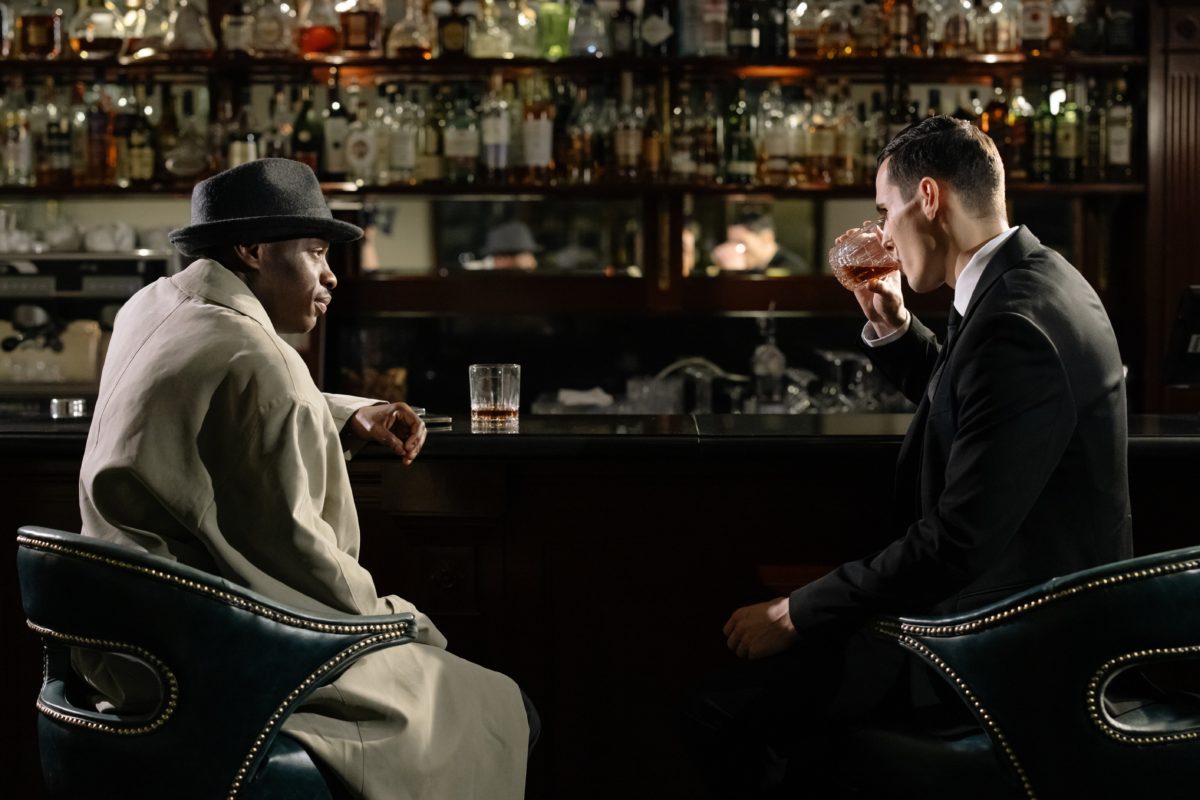
It might’ve taken on a different left turn. No, that’s interesting gaming because I think you and I have quite a few things in common with comments about our drive, right? And I think sometimes people may, at least that’s the feedback I’ve received, right? There’s times where they say, you know, Kyle, you’re ready to go so fast and moving so fast that you forgot that.
Behind here. Like we’re still waiting and it’s not because I didn’t feel that they, they didn’t provide any value is just because I’m so motivated by driving in direction and results that sometimes that needs to happen. And so what I like that you said is there’s moments where you kind of have to, you know, take that step and recognize and empathize.
I think it was a word you use to say, okay, well, where are they? Are they ready for this drive? Or did I get all the information? Cause there’s times where, you know, I know this is gonna be a big secret and surprise to you. You know, I have acted on probably half the information, right. I may not have the full information.
And so I made those [00:08:00] decisions. And so, you know, and how do you stay mindful of that though, that you are able to slow down enough to kind of empathize with this folks that may still not be there yet, you know, to ready to take, you know, the next step. Yeah, when your DNA is being creative. And I like to think of myself as being someone creative in the space that I’m in.
One of the problems is being creative and then labeling on the assumption. I thought it, I must be right drive forward. Right. Um, you know, like there’s many tables that don’t sit straight because they, they measured once some cut and that whole adage of maybe I should measure twice. So before I, before, I just assume and drive forward.
Maybe I better test those assumptions. And, and I think as a leader, being able to test assumptions on those that are with you, um, in the race with you, um, you know, those are the people that are there to make sure that you do measure twice and [00:09:00] challenge not only challenge your authority, challenge, your perspective, challenge your creativity, uh, recognizing that that challenge is actually your superpower.
You know, as soon as you just drive forward with an assumption, there’s always risk. And so again, having great people around you actually, but does become some of your superpower because your creativity is now entitled by the support and energy of everybody else. So, you know that one and one equal three is because
that energy comes along. And so just load, just load testing your idea on someone you trust and respect often makes your idea that much stronger it’s and in our business it’s sales, right? We’re a sales culture. So you know, it basically tests is the market ready for that path? And sometimes the market’s not going to your idea could be brilliant.
You know, the first person to think of live streaming instead of Betamax. [00:10:00] I remember the guy that did live streaming. It didn’t work. Napster kind of work a little bit. It took Steve jobs and iTunes to make it work. So you don’t have to be first. Maybe you do have to catch up with platform and tools and everything so that when your idea comes forward, it’s much more robust.
So I think that’s probably a big part of it. Yeah. And, you know, I find it, like I said, in previous world, for me, I find sometimes people may not feel they could approach us, right. Cause when you are a few positions removed or you hold a certain title in an organization. Cause sometimes I hear even for some of my emerging, you know, leaders, clients who says, Hey, like how do I set the next level?

I said, this is great. How do we have a conversation with your EVP or your senior guy? And they’re like, oh, I don’t know. I don’t think he’ll be receptive. Whereas you just said, Hey, there’s times where you don’t mind someone challenging. Here’s what I did is I did we measure it three times. Did it, do we need to measure it again?
I mean, are you saying that [00:11:00] you’d be open to that as well because these guys feel sometimes they don’t want to speak to us about it. I’ll give a specific example where a gentlemen on my current team, still on my team, I made a comment on a team call and I can’t remember the, exactly what I said, but it was something along the lines is where did this become a democracy.
Basically shutting him down. Well, I got, I got a call after that meeting and he correctly called me out on that comment. Like that’s not our culture and yes, you may have to make the tough decision, but that doesn’t entitle you to just override our perspective. You know, we got to walk, we got to work it through.
We got to walk that mile together and not. You shut me down. And he was absolutely right. And I can tell you the apology was immediate. And I think an important part of that was on the next call an apology to the team, because it’s [00:12:00] one thing for a strong peer to stand up to you. But what was the message I sent to the 23 year old on the team?
Who’s not used to a 55 year-old shutting them down. Like have I created a fear factor from bringing them bringing their ideas? And so that was a really good learning moment for me to remember. Yes. You’ve got to make some tough decisions. Yes. Some days you feel like the entire weight to the world is on your shoulders, but don’t forget that by having a diverse team around you, your perspectives are empowered, right?
Your perspectives are empowered. Your decisions are now empowered. And most importantly, part of that is they’re supported. So you’ve basically in my team of nine, my voice gets nine times as powerful if other people adopt that perspective. So it was a very valuable lesson to learn. I liked that. So how did that happen?
Because I find in the environment [00:13:00] doesn’t support that type of speaking up. Then most folks don’t because they may not be aware of it’s even happening. You know, it’s one thing when you say, you know, uh, with culture is that it will happen with, or without you, the question is, do you want to be deliberate about it?

Right? Do you want a culture where you didn’t really create for yourself when we talk about curating that, you know, corporate coaching culture, that everyone feels they can speak up? Like, was that just unique to this person? Or do you feel that that is something that you’re actively doing on that team to make sure people feel that they can speak up?
I, I believe we’re actively doing it on the team. I think, you know, this is, you know, I’ve led a number of teams I’ve been in, in a couple of different companies and my success and failure speak for themselves. But I think, you know, I love, I’ve always loved the quote if I see far the most it’s because I stood on the shoulders of giants.
That’s not just the people. That’s not just people that mentored me, but it’s the giants that support me. [00:14:00] Right. And so they give me a comfort zone. They give me a community that allows me to elevate my game. And so remembering that it’s their job, that’s my job to facilitate them empowering and informing my game.
And so. It suddenly changes the power co-efficient on a team. When the leader is looking at his team to empower him, everybody, everybody kind of thinks of the reverse, the leaders empower the team and yes they do, but it’s a two way street. And that’s the beauty of a really high functioning team, I think is that there is that give and take.
And there is that empathy for perspective. And I think in the last year and a half, two years, we’ve lived through some in phenomenal times where, you know, you just have to look at me 55 year old, white male privileged, you know, what’s my perspective. Well, my perspective is informed by that bias. And [00:15:00] you know, when you, when you start to have
black people on your team and Asian people on your team and women on your team and young people and older. Um, that’s some, again, I talked that’s my superpower, right? Like my privileged myopic bias is now informed by very different biases. And as a result, I think we’re stronger. Yeah. And, and so I happen to know a lot about your team, right?
You have some real strong, ambitious people on your team. And one thing that, you know, we often speak about is how do they, you know, how do cause team is about a collective results. It’s not to the individual result is a collective results, which I know you subscribe to as well. Damian, how do you create that on your team where you remind folks that it’s a collective results?
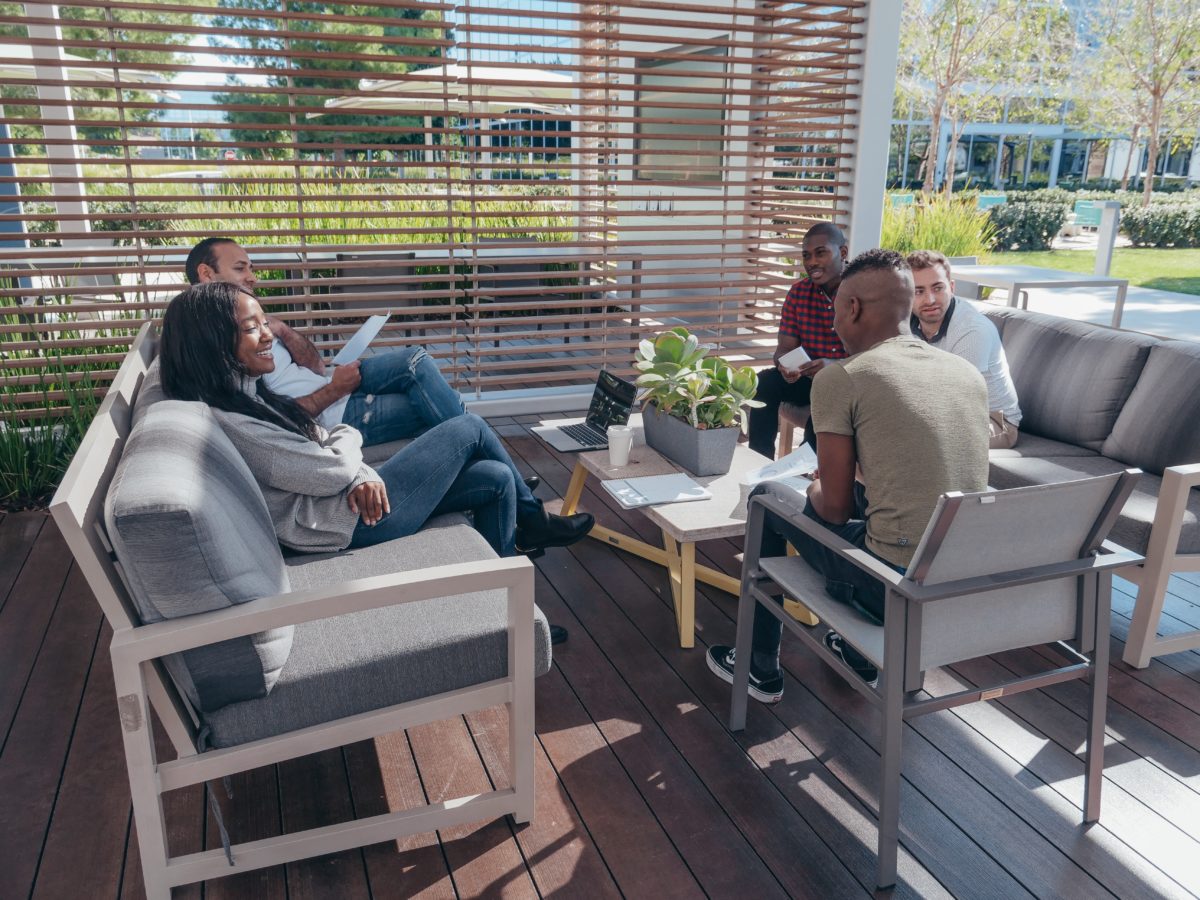
Because like I said, I’m aware that your team is quite ambitious and everyone plays a role in that, but how do you make sure everyone’s diversity or [00:16:00] individual opinion gets a voice. Like what would you say that? Cause there’s a lot of leaders sometimes out there, you know that as they may be listening to this podcast and watching today that they feel if they don’t come up with a great ideas, they’re not a leader.
If they’re not the ones who’s coming up with all these great decisions, they’re not leader, which like you just said, it’s, there’s a collective group that has to be able to contribute to this thing that some people are on certain people’s shoulders. Some people are holding certain people up, right. To be able to do that.
But with you having such a competitive team, how do you actually make sure that everyone gets a chance to say something at the table? So to speak. Time, time it’s, I’ve got to give time. Um, one of my weaknesses is I’m trying to be two steps ahead. So sometimes somebody is sitting in the chair right beside me.
And I’m listening to them, but I’m thinking about what I need to say next and not absorbing and focus and time on them and giving that, that platform where you’re actually [00:17:00] truly giving time to listen to perspective rather than, you know, some I, the pregnant pause in a conversation where everybody’s thinking.
And somebody feels compelled to fill in that space rather than, you know, what maybe what we should be doing is this collective pause and thinking and figure it out and on a team environment, having meetings that don’t have super structured agendas, let people talk it through, let people have the floor.
Um, you know, our team has three meetings a week. It’s led by three different people rather than always me. Um, and, and for good reason. I have a huge subscriber as we focus on our strengths, not our weaknesses. And if we’re weak, if we’re weak in an area and let’s bring in someone that’s strong in that area.
And it’s like, you know, now discover your strengths is not it’s old news, but in my mind, it’s a cornerstone of my evolution. As a leader was starting to realize, like, let’s be clear. [00:18:00]There’s a lot of things I’m not very good at. And I could spend an awful lot of energy trying to get better at it, or I could go and
bring a team member on that just fills that void and, you know, uh, where they say opposites attract. Well, sometimes it’s, you know, you’re really creating, bringing those two poles together. So you become a very big positive force. So, um, to me, that’s giving them the space, making sure you’re respectful of your own weaknesses, enough to vocalize them, share them so that your teammates can vocalize and share those because there’s a fear factor.
They’re the junior. Um, and then as a team look at, okay, well, how do we take these and become the power couple, um, as a result. Damien thank you for saying that piece about the strengths. Cause I can’t tell you how many leaders I’ve worked with I’ve had to untrain them on this whole thing that we have to be this well-rounded [00:19:00] minimum weaknesses, all that we have to be so good at our weaknesses.
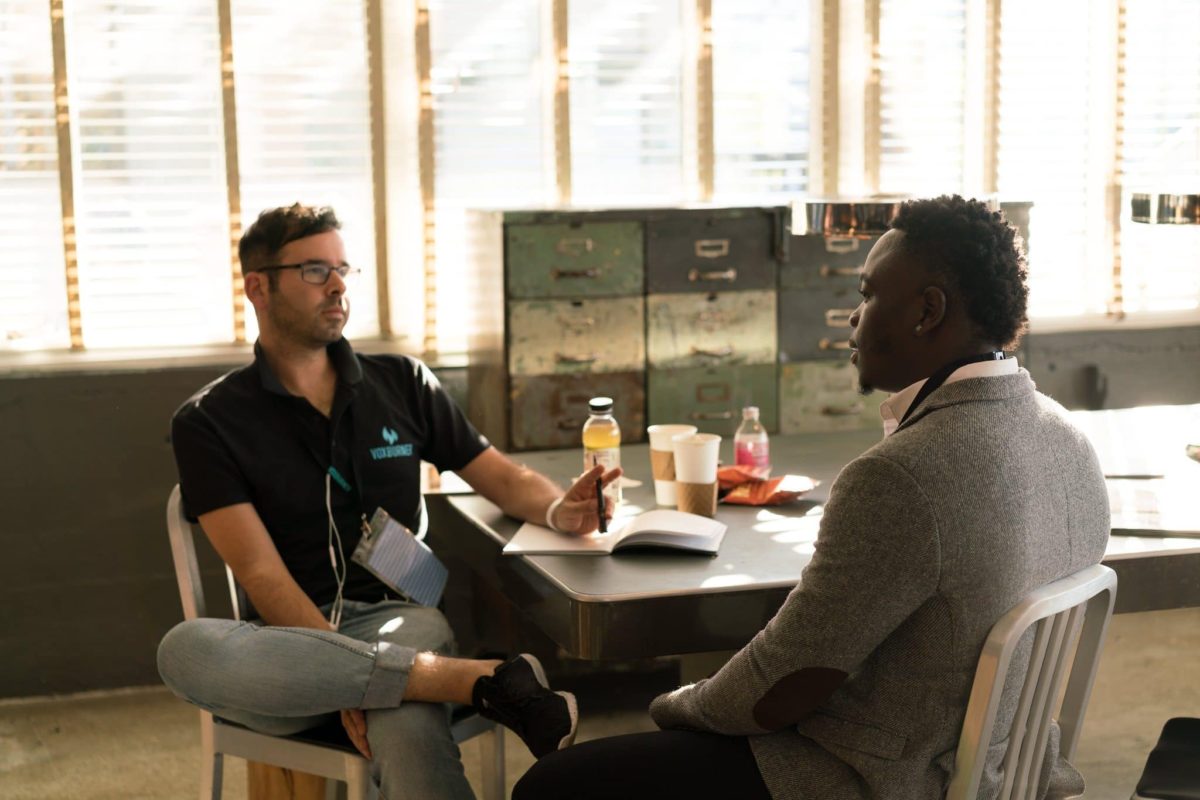
And I’m like, why? And here’s the thing. Even in recruiting, we’ve set it up to fail by telling someone, you know, tell me about your weaknesses. What’s your weakness. I remember it’s been a while. I’ve had to interview for a job, but, you know, I remember when I used to, when they would ask me that question, you know what I’d say to them?
I said vanilla cake. That’s my weakness in has vanilla cake. I don’t know what is it? And I know, I mean, I said, you’re not hiring me for my weaknesses. You’re hiring me for my strengths. You want me to bring this to the table? Right? Because if I’m weak on it, I’m sure he could hire someone else to be at that.
And so when you said that piece around maybe being mindful of it and vocalizing it, because you may not know there’s a guy in your team that love spreadsheets. And he could be in spreadsheets all day, right. Where I could sit down and says, okay, can you put this into a spreadsheet? Like I don’t need to go be a master in spreadsheets.
There may be someone on the team that has that strength that they want to be able to tap into. So thank you for finally saying that, because I think a lot of [00:20:00] leaders feel that everybody on their team needs to have this hundred percent well-roundedness, which doesn’t make sense. I would add one critical comment.
We all hear this story. Millennials are a problem because of this entitled generation, right? I would go so far as to say leaders are a problem because they feel entitled. And I think as soon as you feel entitled, that’s, that’s the biggest landmine that you’re going to step on somewhere. Somehow you may Dodge it, you may avoid it, but somewhere that is going to blow you up.
And, uh, I think I use the expression master of nothing, servant to all love that. That’s that’s the style. I really think that that’s, lets be clear. Yeah, that’s the style nearing the end of my 30 year career it sure as hell it wasn’t a style in the first 10 years I became a partner in a firm of 31. So I was, I was given the mantle, given the mantle of leader 31, my failings, my real [00:21:00] failings were in assuming that I was entitled to that.
Right. And I can assure you, my I’m 31 years old. My experience hasn’t entitled me to that my, my moving the needle or the Richter scale in commercial, leasing in Calgary, didn’t entitled me to that. So what actually entitled me to that. Okay. So getting through that, starting to realize that my greatest successes are actually going to be the successes of my team mates.
That I then get, I get the praise because Hey look what your team did, right? It’s like those accolades are, are awesome. It builds your ego. Let’s be clear. You didn’t get there by yourself. Right. I love that. I mean, you, what you just discussed, there was a question I had for you, which is about the silver lining of some of those failures.
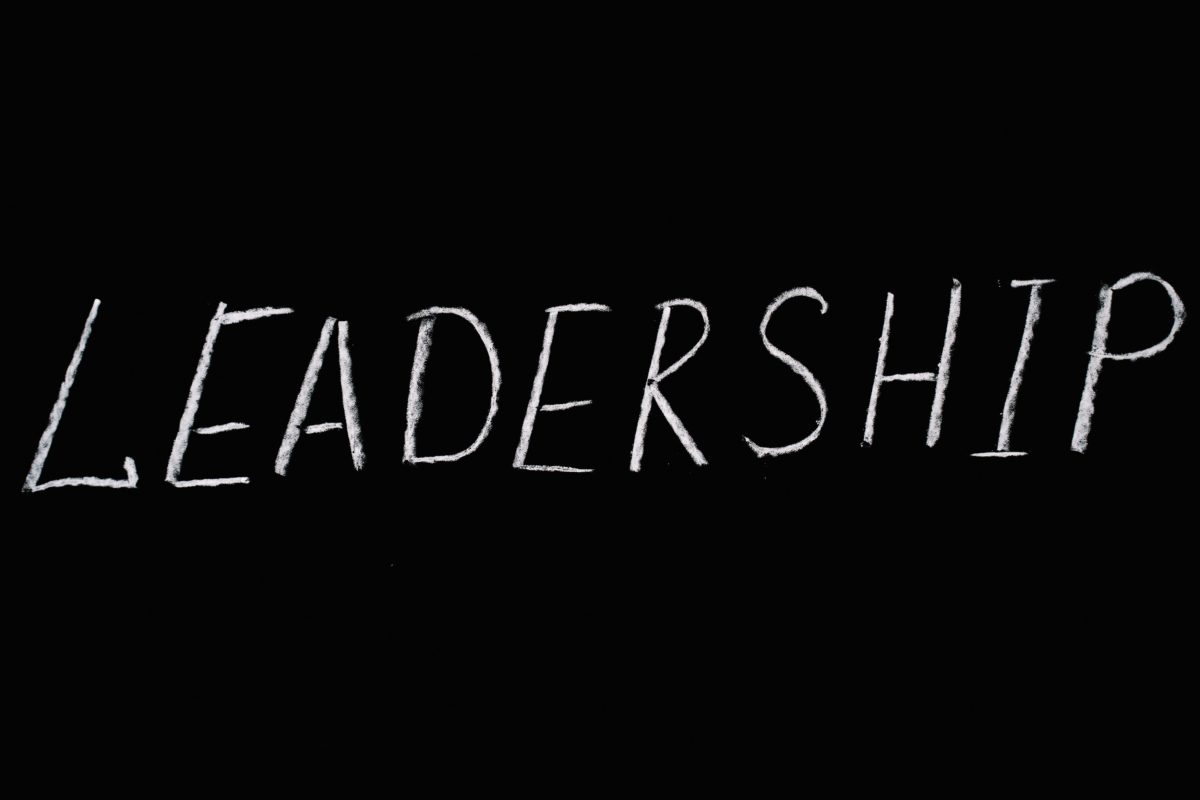
And I think you just really hit it home there by saying, Hey, it’s a combination of all these things, because sometimes our entitlement as a leader, we think we’re entitled to all of these. That may not necessarily be true. Um, so just a couple final questions here. Do you mean as we kind [00:22:00] of wrap up, you know, with everything that we’ve kind of chatted about today, what would you say is, um, a challenge right now for you and your leadership?
Um, well, proximity I miss, I miss, I miss having people in the office. I miss having people around me. Um, you know, I get energy from the team. And it’s hard to do that in the virtual space. So, you know, I’m hoping that’s very much a, a small piece of time that we’re all going to get over, but I get generally it’s, that’s probably, um, the biggest barrier, you know, everybody’s dealing with an economy that’s shrunk in an enormous amount.
And so as someone who tries to wear the mantle for the pain and suffering of a team, um, it, it, some days it feels like a load to carry, but. Again, you surround yourself with good people. The energy comes back very quickly, um, and stuff. And I [00:23:00] think, uh, there’s a quote that I’ll share, but it’s all about, um, the foundational aspirations of teams and Andre Agassi once said, icing sucks if you don’t have cake.
And so that foundational stuff is, is so critical. So as we go to look at. Isolation period, this virtual world where the human animal just can’t come together and participate. It’s like, let’s make a cake again. Let’s not, let’s not worry about the icing. Let’s make that cake again and make sure that we’re doing something that is sustaining and fulfilling.
And you know, it’s just not the sugar high at the top of the cage is actually a bit of sustaining and, um, and well, I know there’s another famous quote, give them cake and she lost her head. So
I. It’s a time we’re in a time where [00:24:00] fundamentals on that phone, those foundational elements, um, are critical and, and my team knows this and you, you know, some of them, my, my, probably my biggest single sentiment to them time and time again is there are no shortcuts. There’s no shortcuts. And that’s, that’s sort of my mantra.
It’s, we’re going to do, we’re going to outperform because where we’re not taking short cuts. Yeah, I love that. My follow-up question to you on that was what is one advice you would give, you know, an emerging leader, someone who really wants to up their leadership game, would it still be that about no shortcuts or there’s something else you’d want to add to that?
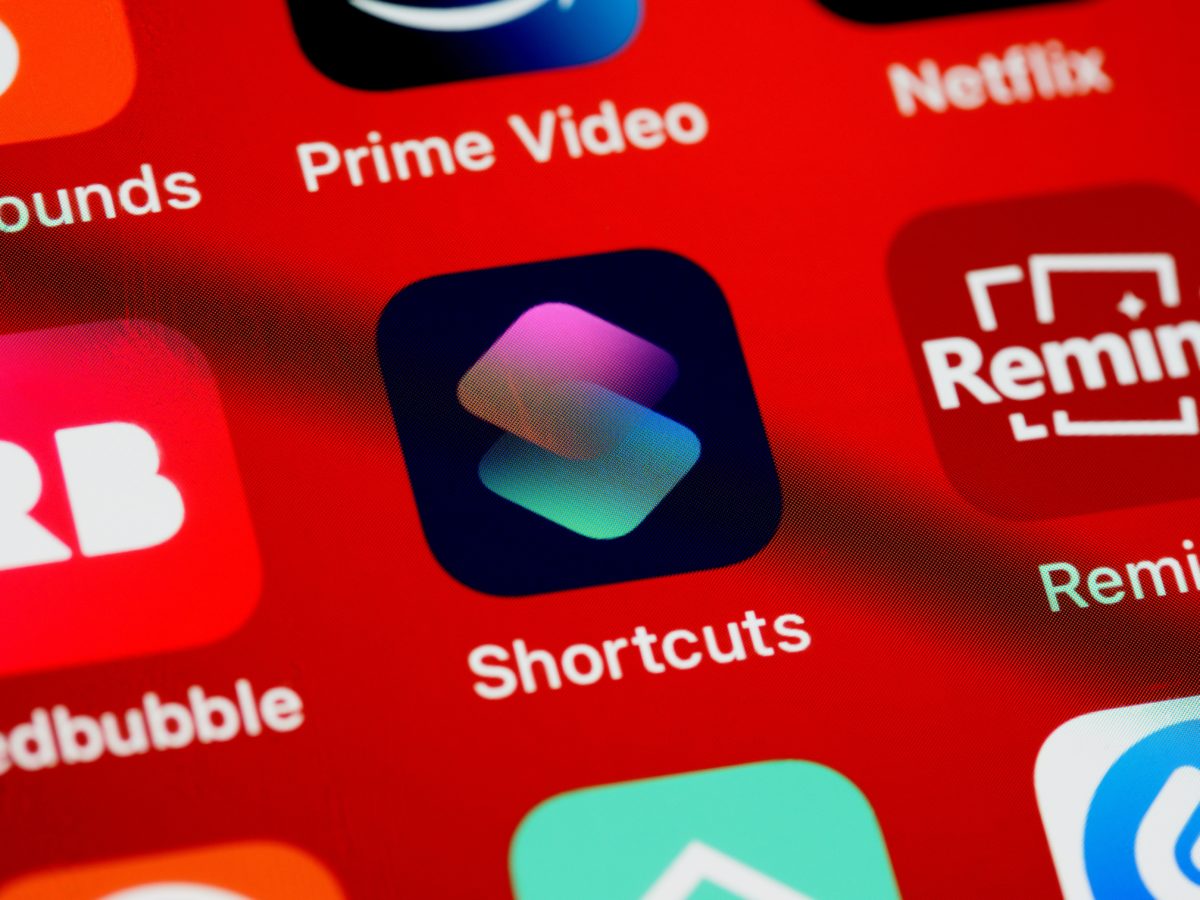
Um, oh no. I think no shortcuts is a good addage, but I think every year, every, every time at times, it’s your turn to evaluate. I think you have to look at the foundation. You know, I think you have to look at, you know, you can have a dream, you know, Thoreau said, if you built sand castles in the sky, you’re working [00:25:00] not be lost.
Now put a foundation underneath them. Right. And so, as someone that is creative as someone that is always trying to push and push and push understanding, take the time. Look back. What are the foundation I’m putting it in that teammate of mine that loves to do financials. Well, what are the foundations that I’m challenging them to do?
The other one that loves to have client engagement? What are the foundational elements that, that, that he’s got to do? So, um, I think the biggest thing is be introspective and always make sure that you’re not getting so far ahead. You’re failing on the foundations and you know, obviously we’ve gone through a period I use, um, as you can tell, I use a lot of quotes, but you know, in the middle of an earthquake is not a great time to build a house.
And if anything has been earthquake, like in the world of business and economics COVID has been that. So trying to reset foundations as everything’s doing [00:26:00] this, not a great time, but don’t forget that. Okay. What are the foundational elements does fundamental. That I do have to return to because they’re fundamental for a reason I can return to that safe platform and rebuild, and I can be ready for the next, you know, shaking.
Yeah, I love that. Damien, thank you so much, you know, uh, for those who are listening, you’ve heard some really great mentoring, um, with, uh, Damien mills today, as we talk about being mindful of, you know, time, right? Being mindful of your team, be mindful of those people who may be surrounding you. Right.
Understand that you cannot get there alone. Right. And also having that perspective, right. That, you know, you may have a certain perspective, a certain ways, however, As a collective team, each of us have perspective and it’s worth sharing. We can’t just be keeping that stuff to herself. It’s worth sharing and being able to be able to do that.
And then also you heard a little bit of, for some vulnerability that Damien alluded to when he talked about, you know, apologizing, [00:27:00] right. Coming back and being mindful that there’s other people on their team. And based on a comment that he made. Someone actually challenged that and it’s okay to have that challenge.
It doesn’t mean at the end of the day, you’re, you’re disagreeing with things you’re just challenging the thought or an action that’s happening on the team, knowing that it’s going to be collective. And so hearing that from the end of the day for you guys, to be able to step into that, that would be really great.
Did I miss anything in that quick summary there? No, that’s great. Makes sense. Yeah, thank you so much, Damien. And for those folks who have not done already, please make sure you’re subscribing, downloading to this podcast, sharing this, especially if you’re from JLL, we need you to share this because people are going to want to hear the inner working of Damien mills, and don’t be afraid that doesn’t always have to be
begging for forgiveness. Sometimes you can engage in, in that asking of that a leadership perspective. So until next time, thank you for joining a pleasure, having you guys listening. We have [00:28:00] another exciting leader coming up next week. Take care. There you have it. Thank you for listening. It’s our goal to build a global community of inspired action takers, and we can only do that with your help.
So if you love Inspired Action For Imperfect Humans podcast, please leave us a review on your favorite podcasting app, provide a rating, download, subscribe, and share us on your socials. New episodes. Every Tuesday you’ve heard from us. Now, we want to hear from you. Keep the conversation going by joining our private Facebook group Inspired Action For Imperfect Humans or go to inspired action podcast.ca and tell us what is the inspired action you took this week?
Next week, on Inspired Action For Imperfect Humans. The money. The business is an important side of things, but if that’s all I focused on with these individuals, you know, Alexa cares about his bottom line and that’s, that’s all he wants. Right.[00:29:00]

